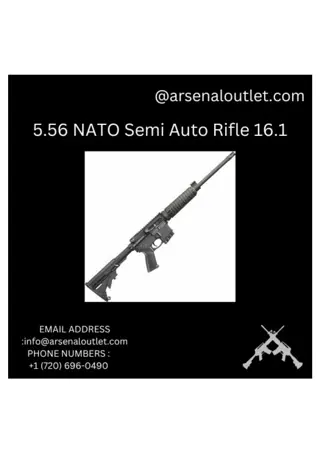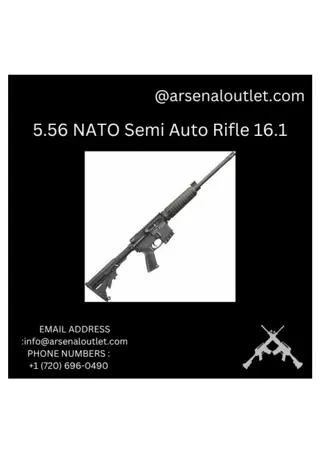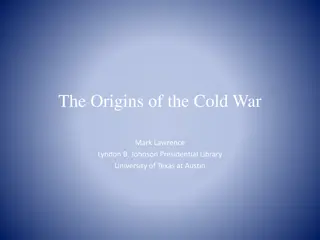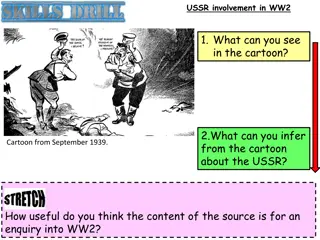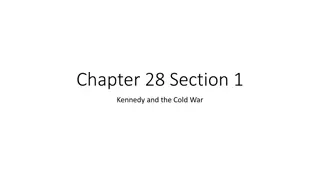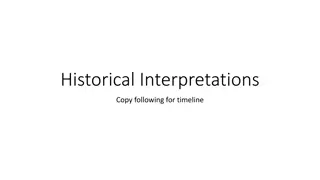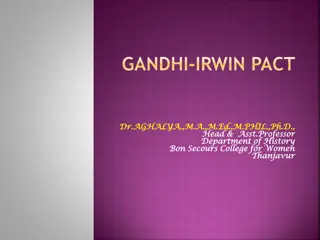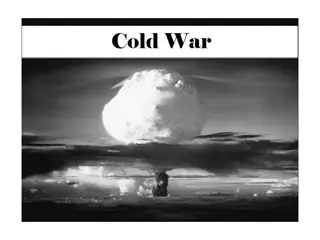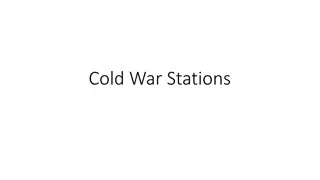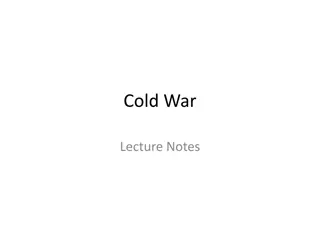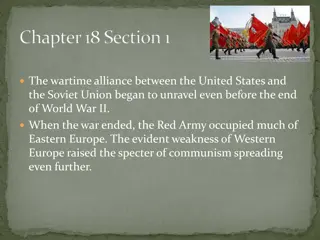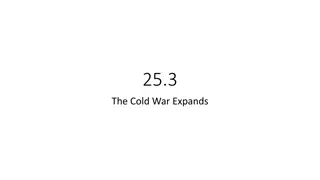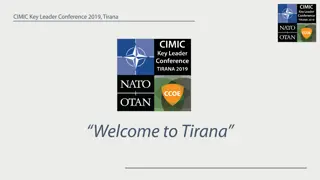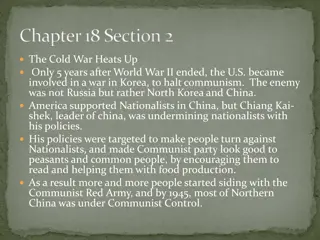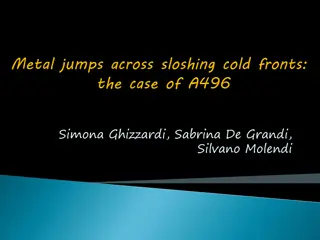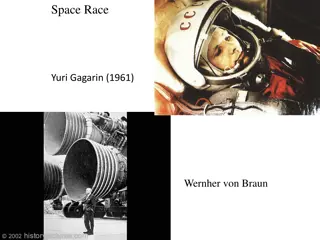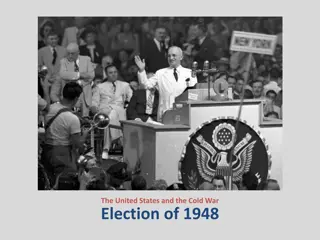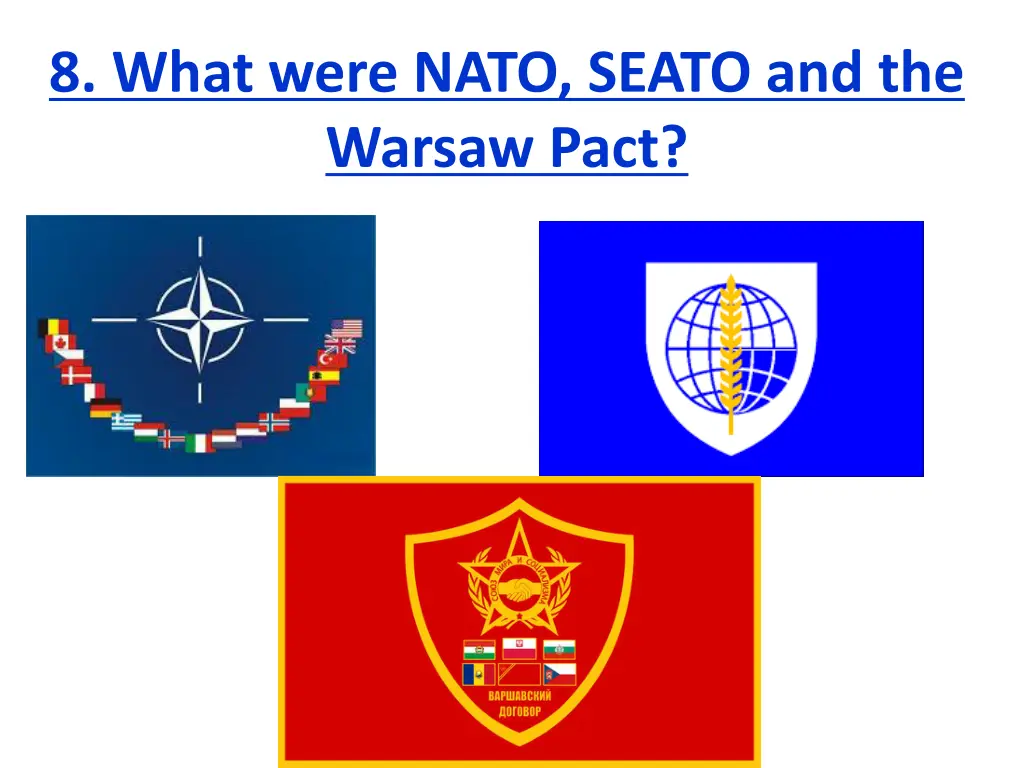
Understanding NATO, SEATO, and the Warsaw Pact in History
Learn about the historical significance of NATO, SEATO, and the Warsaw Pact, including their establishment, objectives, member nations, similarities, differences, and exam-style questions related to key events like the Berlin question and the Cuban Missile Crisis.
Uploaded on | 1 Views
Download Presentation

Please find below an Image/Link to download the presentation.
The content on the website is provided AS IS for your information and personal use only. It may not be sold, licensed, or shared on other websites without obtaining consent from the author. If you encounter any issues during the download, it is possible that the publisher has removed the file from their server.
You are allowed to download the files provided on this website for personal or commercial use, subject to the condition that they are used lawfully. All files are the property of their respective owners.
The content on the website is provided AS IS for your information and personal use only. It may not be sold, licensed, or shared on other websites without obtaining consent from the author.
E N D
Presentation Transcript
8. What were NATO, SEATO and the Warsaw Pact?
12 questions 1. When was NATO established? 2. What precipitated the creation of NATO? 3. What was the objective of NATO? 4. What nations were involved in NATO? 5. When was SEATO established? 6. What precipitated the creation of SEATO? 7. What was the objective of SEATO? 8. Why nations were involved in SEATO? 9. When was the Warsaw Pact established? 10. What precipitated the creation of the Warsaw Pact ? 11. What was the objective of the Warsaw Pact ? 12. Why nations were involved in the Warsaw Pact ?
Differences and similarities: NATO SEATO Warsaw Pact Similarities:
Question 2 - practice Write 3 exam question in the style of Question 2 Throughout the years 1949 to 1961, the question of Berlin caused East-West tensions. Explain why you agree or disagree with this view. [25 marks] The outcome of the Cuban Missile Crisis was a triumph for the diplomacy of Nikita Khrushchev. Explain why you agree or disagree with this view. [25 marks] The Western powers had considerable success in limiting the spread of Communism in Asia in the years 1949 to 1960. Explain why you agree or disagree with this view. [25 marks] Credit for the peaceful resolution of the Cuban missile crisis should be shared equally between Khrushchev and Kennedy. Explain why you agree or disagree with this view. [25 marks]

